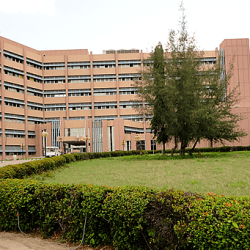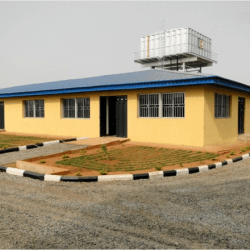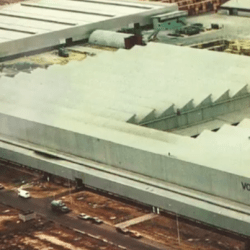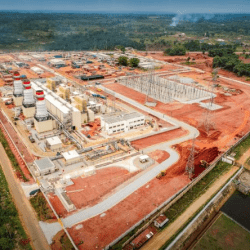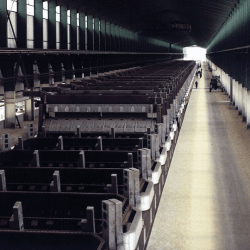Completed in 1987, the Ajaokuta Steel Plant in Nigeria stands as a symbol of the nation’s industrial aspirations, serving not only as a massive industrial complex but also as a hallmark of Nigerian engineering and craftsmanship. The seven-storey administrative building within the plant provides office space for about 900 employees, making it a central hub for steel production operations and management.
Architectural Highlights and Use of Local Resources
- Reception Hall: The building features an expansive and refined reception hall with walls and floors adorned in Nigerian-polished granite, a testament to the use of locally sourced materials. Julius Berger, a prominent construction company in Nigeria, was instrumental in the selection and installation of these granite surfaces, underscoring the importance of Nigerian craftsmanship in the project.
- Building Design: The seven-storey structure is both functional and aesthetically pleasing, offering ample office space in an industrial setting. The polished granite lends an air of elegance and professionalism, aligning with the plant’s role as a leading industrial complex in Nigeria.
Ajaokuta Steel Plant’s Role in Nigeria’s Economy
Originally envisioned to boost Nigeria’s self-sufficiency in steel production, the Ajaokuta Steel Plant was planned as a large-scale facility to meet both domestic and regional demands for steel. Although the plant has faced challenges in reaching full operational capacity, it remains a key component of Nigeria’s industrial sector, with the potential to drive significant economic benefits.

Commitment to Local Craftsmanship and Resources
The use of Nigerian granite for the reception hall’s walls and floors highlights the commitment to supporting local industries. This focus on indigenous resources aligns with national goals for self-sufficiency, showcasing a blend of Nigerian craftsmanship and the technical expertise of Julius Berger.
The Ajaokuta Steel Plant, through its architectural and industrial significance, continues to hold promise for Nigeria’s economy, representing both the challenges and aspirations of the country’s industrial sector.
